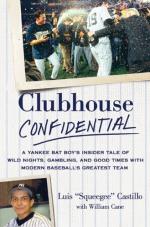|
This section contains 1,083 words (approx. 4 pages at 300 words per page) |

|
Bingo originated in America as a carnival game called "beano," which was based on a sixteenth—century Italian lottery game. New York toy salesman Edwin Lowe retooled the game to resemble its modern incarnation. Players try to match numbered squares on cards with numbers drawn at random by the bingo announcer. Since the early 1930s, American churches, synagogues, and charities have held weekly bingo games as a way to supplement the contributions of congregants and donors. Because of its popularity with churchgoers, bingo was the first form of gambling to be legalized in many states and has long served as a social outlet for its primarily elderly players. In the following article, Boston Globe reporter Sarah Schweitzer describes how church and charity bingo games are in decline, losing players to rapidly proliferating casinos where the games are faster...
|
This section contains 1,083 words (approx. 4 pages at 300 words per page) |

|




